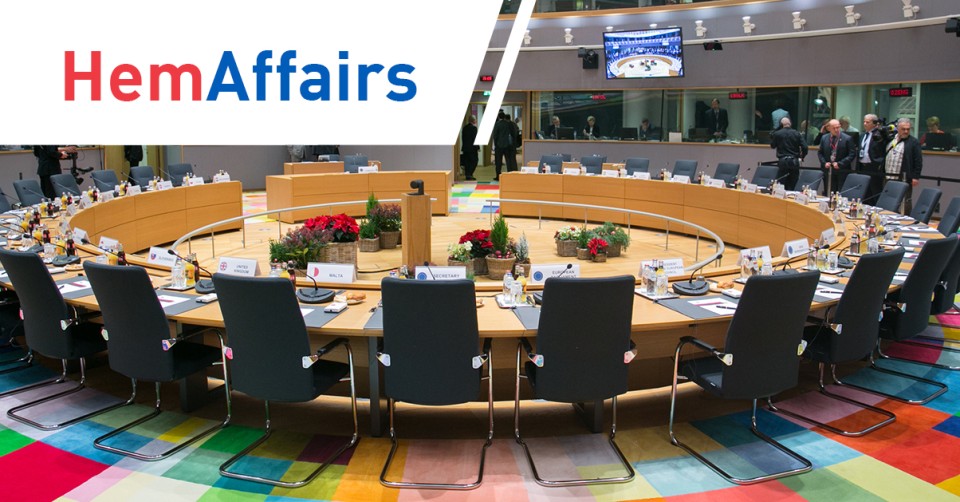This information originally appeared on the previous EHA website. Links to other pages may be inactive.

Every European citizen should have access to the best quality medical care at the best possible price. Pan-European cooperation on health technology assessments (HTA) is essential for such aspirations. EHA therefore supports the European Commission’s proposal for a Regulation on HTA and is looking forward to a political agreement on the text. What is the current status of joint health technology assessments? How will the Romanian presidency of the European Union (EU) lead the discussions?
The status quo
European health technology cooperation is in desperate need of improvement. At the moment, HTA is done on national or regional level and cross-border collaboration takes place on a voluntarily basis. Consequently, health technologies are assessed in different countries, resorting to different processes and methodologies. This leads to duplication of efforts, inefficient resource allocation, limited knowledge sharing and lower benefits for European patients.
EHA thus welcomed the European Commission’s legislative proposal on HTA, released on January 31, 2018. The latter aims to improve the functioning of the EU single market for health technologies by compelling Member States to work together for evaluating the effectiveness of innovative medicines and equipment. Unfortunately, political negotiations on the text have stalled. Four Member States raised objections on the mandatory use of joint clinical assessments, namely Germany, France, Poland and the Czech Republic. By and large, opposition crystallizes around the economic argument: clinical HTA is linked with cost-benefit considerations and decisions on pricing and reimbursement, which are the prerogative of national governments. Failure to reach agreement on this dossier would be a setback for efforts to make the benefits of hematology clinical research available for patients faster and cheaper.
Impact on hematology research
As a research-intensive discipline, hematology is behind ground-breaking clinical studies and innovative medicines – for both malignant and non-malignant blood diseases. The reach and impact of these innovations would benefit from a system of joint clinical assessments, which would speed up access and reduce costs.
As the European Network for Health Technology Assessment (EUnetHTA) and the HTA Network have already demonstrated, the benefits of Union-level cooperation are manifold:
- Clinical benefits: Joint HTA allows countries and researchers to coordinate efforts and pool resources. Besides advancing clinical research, it contributes to sharing technological knowledge and methodologies for more precise evaluations of health technologies;
- Availability of novel treatments: HTA speeds up the market entry of approved innovative treatments in Member States. This is essential for addressing the current market fragmentation, whereby some countries grant market access, while others don’t;
- Prices and reimbursement: New medicines are costly, and their prices continue to rise. HTA cooperation can help contain the cost of developing new treatments. Furthermore, it can guide Member States’ reimbursement decisions, contributing to making new treatments affordable while minimizing their impact on public finances. Wild differences in prices and reimbursement schemes from one Member State to the next are at the root of inequalities in treatment options for certain diseases. Joint HTA can then become an instrument of fair pricing;
- Patient accesss: Crucially, joint HTA speeds up access to innovative treatments that can improve quality of life for patients.
Prospect of a political agreement?
EHA welcomes the commitment of the Romanian Presidency of the EU to move the political discussions on the HTA proposal forward. In her exchange of views with the European Parliament’s Environment Committee (ENVI) on January 22, 2019, Romania’s Minister of Health, Sorina Pintea, confirmed that HTA is one of five priorities of the presidency for health policy. Despite diverging views, Member States are all in favor of cooperating at EU level.
The HTA proposal will be on the agenda of the Employment, Social Affairs, Health and Consumer Affairs (EPSCO) Council meeting of June 14, 2019. Technical and working group meetings will continue until then. This leaves no hope for a political agreement before the European Elections of May 26, 2019.
EHA meanwhile continues to support efforts[1] to raise awareness among decision-makers about the benefits of joint assessment of health technologies. Such a coordinated system is essential to support hematology research, as well as innovative, affordable and accessible solutions for patients across the EU.
[1] E.g. via the European Public Health Alliance. See The proposed European Commission Regulation on HTA: a golden opportunity for patients and health budgets by Yannis Natsis, July 2018.